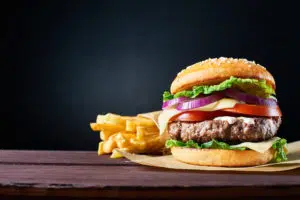
In addition, the current economic climate has made it difficult for many restaurants to stay afloat. The rising cost of ingredients and staffing costs and spiralling energy prices has put a strain on many businesses, and the increase in online ordering has made it harder for restaurants to make a profit.
As a result, it is not surprising that the number of restaurant insolvencies has risen sharply in recent years.
This has already lead to multiple restaurant closures of big and small chains including Jamie’s Italian, Prezzo and Gourmet Burger Kitchen, and further closures in the sector are predicted.
Insolvency Specialists in the restaurant sector
The restaurant sector has been hit hard by the Covid-19 pandemic, with restaurants across the country forced to close their doors. Many restaurateurs have found themselves struggling to keep up with payments, and insolvency specialists are seeing a surge in enquiries from businesses in the sector.
While the restaurant sector is among the most affected by the pandemic, it is not the only one. As the UK’s leading insolvency specialists for this sector we are starting to see more enquiries from these sectors in the coming months. While the current situation is challenging for businesses, there are options available to help them weather the storm.
Our specialists can provide advice on restructuring debt, negotiating with creditors and taking advantage of government support measures. With expert help, businesses can get back on track and emerge from the pandemic stronger than ever.
What problems are restaurant owners facing?
The typical problems that many restaurant business owners are facing include:
- People spending more time at home instead of dining out.
- The rising costs of employing staff.
- Cost of gas and electricity
- Increased rates and taxes.
- Competition from other restaurants and public houses.
- Lack of investment capital for refurbishments or marketing to generate more customers.
- Having to repay government bounce back loans
The problems are common within the restaurant sector, with profitability suffering due to problems like these, and a lot of restaurateurs are looking for the best way to close down their company.
Types of Insolvency for restaurants
There are a number of types of insolvency for restaurants in the UK these include:
Creditors’ Voluntary Liquidation
Voluntary creditors liquidation is a process designed to allow insolvent restaurants to close down in an orderly way. The process is overseen by a licensed insolvency practitioner (IP), who acts as the liquidator. CVL is usually used when it becomes clear that the company cannot pay its debts and there is no realistic prospect of turning things around.
The main aim of CVL is to repay as much of the company’s debt as possible. To do this, the IP will sell off all of the crestuarants assets and use the proceeds to pay creditors. Any money left over after creditors have been paid will be distributed to shareholders. CVL can be a stressful and emotional time for those involved, but it can also provide some much-needed clarity and closure.
Company Voluntary Arrangement
Creditor voluntary arrangement or CVA, is a formal agreement between a company and its creditors to repay debts over an extended period of time. This arrangement can be used to avoid insolvency, or it may be used as part of a wider restructuring plan. CVAs are typically used when a company is facing financial difficulties but is still considered viable in the long term.
The terms of the CVA are agreed upon by the company and its creditors, and they are binding on all parties involved. Once the CVA is in place, the company will make regular payments to its creditors according to the agreed-upon schedule.
This type of arrangement can provide much-needed breathing room for a struggling restaurant, but it is not without risk. If the company defaults on its payments, the CVA can be terminated, and the restaurant may be forced into insolvency.
How do I know if my restaurant is Insolvent?
The insolvency test for is simple:
- Do you debts outweigh your liabilities?
- Can you pay your bills on time? If not, you are likely insolvent
Take a view of our insolvency test to confirm the figures
We’re here to help restaurant owner
If you are a restauranteur and struggling with historic debts we offer free insolvency advice for restaurants. Simply contact us via the online enquiry form or simply cal us for one of our insolvency specialists to talk though your options, all our insolvency advice for you and your restaurant is free of change.
We will offer a number of solutions to hopefully get you back up and running with out the pressures of debt.
Conclusion
In conclusion, restaurants facing insolvency have a number of options for seeking advice and finding a solution to their financial difficulties. These options may include seeking the guidance of a licensed insolvency practitioner, consulting with a financial advisor or accountant, and seeking legal advice from a specialist in corporate restructuring or insolvency law. It is important for restaurants to act promptly and seek professional advice if they are experiencing financial difficulties, as timely action can improve the chances of finding a successful resolution and potentially save the business.
Additionally, restaurants may be able to negotiate with creditors, restructure their operations, or consider alternative options such as a company voluntary arrangement or a formal insolvency process in order to address their insolvency and protect the business and its assets.
With over three decades of experience in the business and turnaround sector, Steve Jones is one of the founders of Business Insolvency Helpline. With specialist knowledge of Insolvency, Liquidations, Administration, Pre-packs, CVA, MVL, Restructuring Advice and Company investment.
